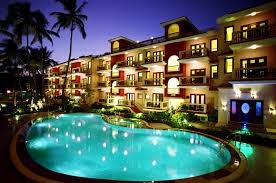hotel
英 [həʊˈtel]
美 [hoʊˈtel]
- n. 旅馆,饭店;客栈
- vt. 使…在饭店下榻
- vi. 进行旅馆式办公
- n. (Hotel)人名;(法)奥泰尔
使用频率:

记忆方法
将“hotel”分解为“hot”和“el”,想象一家“hot”很受欢迎的“el”小屋,这样的场景容易在脑海中形成画面,帮助记忆这个单词的含义,它指的是旅馆或酒店。
以上内容由AI生成, 仅供参考和借鉴
中文词源
hotel 旅馆,酒店
来自法语hotel,来自古法语hostel,旅店,客店。字母s脱落。
英语词源
- hotel
-
hotel: [17] Ultimately, hotel and hospital are the same word, but they have diverged widely over the centuries. Both go back to medieval Latin hospitāle ‘place where guests are received, hospice’, but this developed in two different ways in Old French. One branch led with little change to English hospital, but a reduced form hostel also emerged (borrowed by English as hostel [13]).
Its modern French descendant is hôtel, from which English gets hotel (originally used in the sense ‘large residence’, as in the French hôtel de ville ‘town hall’, but since the 18th century increasingly restricted to its present-day sense). Other contributions made to English by Old French hostel are the derivatives hostelry [14] and ostler [13], originally (as hosteler) ‘someone who receives guests’ but since the 14th century used for someone who looks after horses at an inn.
=> hospital, host, hostel, hostelry, ostler - hotel (n.)
- 1640s, "public official residence," from French hôtel, Old French hostel "a lodging" (11c.), from Medieval Latin hospitale "inn" (see hostel). Modern sense of "an inn of the better sort" is first recorded 1765.
权威例句
- 1. The hotel is set plumb in the middle of the high street.
- 宾馆正好坐落在商街的中段。
- 2. His team-mates opened hotel windows, shouting "Jump!" and somewhat less printable banter.
- 他的队友打开了酒店的窗户,大叫着“跳!”,还开了一些上不了台面的玩笑。
- 3. Free room and board are provided for all hotel staff.
- 宾馆的所有员工都可享受免费膳宿。
- 4. The Atlantic coast is within sight of the hotel.
- 从宾馆可以看见大西洋海岸。
- 5. Check us in at the hotel and wait for my call.
- 去宾馆替我们办理好入住手续,然后等我的电话。
